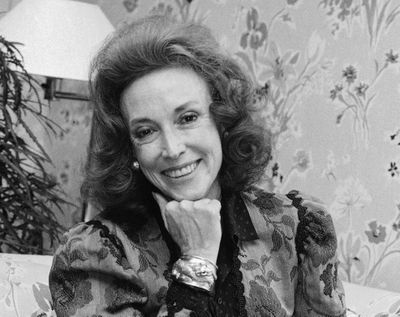Brown gave Cosmopolitan its bad-girl point of view
Magazine’s longtime editor dies at 90

NEW YORK – It was not the kind of advice women were used to hearing:
• Make a list of the men in your life and arrange them in categories: “The Eligibles,” “The Eligibles-But-Who-Needs-Them,” “The Don Juans,” “The Divorcing Man.”
• “Marriage is insurance for the worst years of your life.” Save the “best” for when you’re single.
• “Travel on boats is strictly B.Y.O.M (Bring Your Own Man).”
• And forget about church. “Spiritual benefits,” yes. Prospects for bed, unlikely.
The sexual revolution, Helen Gurley Brown declared 50 years ago, was no longer just for men.
Brown, the longtime editor of Cosmopolitan magazine and an author who encouraged women not to save it for the wedding night, died Monday at a hospital in New York after a brief hospitalization, Hearst CEO Frank A. Bennack Jr. said in a statement. She was 90.
“Sex and the Single Girl,” her million-selling grab-bag book of advice, opinion and anecdote on why being single shouldn’t mean being sexless, made a celebrity of the 40-year-old advertising copywriter in 1962 and made her a foil for feminists who believed that women’s rights meant more than sleeping around.
Three years later, she was hired by Hearst Magazines to turn around the languishing Cosmopolitan, and it became her playtime pulpit for the next 32 years.
She said at the outset that her aim was to tell a reader “how to get everything out of life – the money, recognition, success, men, prestige, authority, dignity – whatever she is looking at through the glass her nose is pressed against.”
“It was a terrific magazine,” she said, looking back when she surrendered the editorship of the U.S. edition in 1997. “I would want my legacy to be, ‘She created something that helped people.’ My reader, I always felt, was someone who needed to come into her own.”
Along the way, she added to the language such terms as “Cosmo girl” – hip, sexy, vivacious and smart – and “mouseburger,” which she coined first in describing herself as a plain and ordinary woman who must work relentlessly to make herself desirable and successful.
Her motto: “Good girls go to heaven, bad girls go everywhere.”
She put big-haired, deep-cleavaged beauties on the magazine’s cover behind teaser titles like “Nothing Fails Like Sex-cess – Facts About Our Real Lovemaking Needs.”
Male centerfolds arrived during the 1970s – Burt Reynolds’ (modestly) nude pose in 1972 created a sensation – but departed by the ’90s.
One early critic was Betty Friedan, who dismissed the magazine as “immature teenage-level sexual fantasy” but later came around and said Brown, “in her editorship, has been a rather spirited and gutsy example in the revolution of women.”